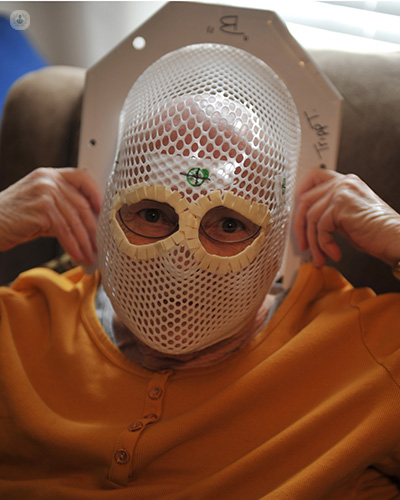Stereotactic radiotherapy
Dr Crispin Hiley - Clinical oncology
Created on: 02-08-2013
Updated on: 03-12-2024
Edited by: Aoife Maguire
What is stereotactic radiotherapy?
Stereotactic radiotherapy is an irradiation technique to target, with precision, tumours. The treatment is done over several sessions depending on the patient. It is a radiotherapy technique that allows a large dose of radiation to be administered to the targeted area. A tracking system is used to locate the tumour and identify the organs at risk, this way the surrounding tissues get a lower dose.
Why would you have stereotactic radiotherapy?
Stereotactic radiotherapy is a useful tool for treating malignant cranial tumours in paediatric patients. It reduces the amount of radiation that the patient gets, and therefore avoids the toxicity that could affect their cognitive functions. It is particularly useful for head and neck tumours.
What does stereotactic radiotherapy involve?
When administering this treatment, the same amount of, or more, radiation is used than in conventional radiotherapy. This radiation is applied in small doses over several daily treatments; this is referred to as a fractionated dose. This helps the reappearance of healthy tissues near the tumour, which is especially important in critical areas such as the brain and optic nerve. The intensity of the irradiation beam varies depending on the anatomical characteristics of the tumour and the surrounding, healthy tissues.
How to prepare for stereotactic radiotherapy:
The radiation oncologist will arrange a CT scan or an MRI scan to identify the area to be treated. There are some recommendations to follow the day before and the day of the procedure, they include; wearing comfortable clothing and not wearing jewellery or glasses. The specialist will properly explain them all before the procedure.
Post-operative care:
A dose is applied per section to not damage healthy tissue. This helps prevent complications. It is not a painful procedure, and long periods of hospitalisation and rehabilitation are avoided. The patient is awake during treatment and can normally go back to their daily routine a few hours after the procedure.







